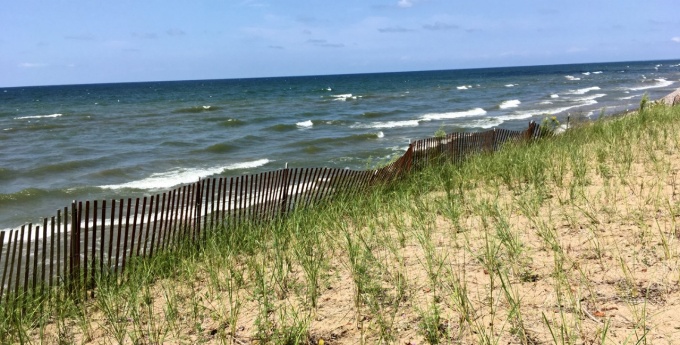MA in Sustainability Leadership

Lead the change. Make an impact. Shape a more sustainable Future.
If you're ready to do more than talk about sustainability—and want to lead it— the MA in Sustainability Leadership is your next step. This flexible, interdisciplinary 30 credit program gives you the knowledge, tools, and confidence to tackle complex challenges across sectors and systems.
Whether you're headed for a career in sustainability consulting, environmental policy, corporate leadership, public service, or continuing on to a PhD, this program equips you to lead with insight and impact.
Learn about:
The big problems—climate change, equity, conservation, resilience—won’t be solved in silos. That’s why this program draws on faculty from across disciplines: ecology, ethics, economics, humanities, and more.
You’ll work with researchers, policy experts, and real-world partners to solve real problems. You’ll graduate ready to lead in:
- Government and nonprofits
- Environmental policy and advocacy
- Sustainability management or consulting
- Research, teaching, and public or private sector leadership
And you’ll do it in Buffalo, a city undergoing one of the most ambitious sustainability transitions in the country.
- 30 credits (can be completed at your own pace)
- Customized course plan based on your background and career goals
- Small cohort experience with one-on-one mentoring
- Project-based final capstone solving real sustainability challenges
- Flexible schedule ideal for working professionals or full-time students Eligible for the Advanced Certificate in Sustainability credits to be applied to the MA
💡Note: This program prepares graduates for in-demand, meaningful careers while emphasizing collaboration, communication and leadership.
Courses center around seven core themes that build the knowledge and skills to lead across systems and sectors:
- Define sustainability and recognize the major challenges we face
- Understand environmental, social, and economic dimensions of sustainability
- Communicate effectively with diverse audiences
- Analyze data (qualitative and quantitative) for decision-making
- Apply systems thinking to complex, real-world problems
- Lead projects and teams toward sustainable solutions
Required courses include:
- Fundamentals of Sustainability (SSN 501) — Fall only
- Sustainability Professional Skills Capstone (SSN 601) — Spring only
To round out your curriculum, you’ll choose one course in each of the following areas:
- Environmental and Ecological
- Social, Cultural and Human
- Economics and Business
- Tools and Data Analysis
- Leadership
- Communication
Your course plan is developed based on your background, goals and project focus.
This is where it all comes together. As your capstone experience, the 6-credit project (EVS 695) gives you the chance to investigate a real-world sustainability issue and propose actionable solutions. You can work solo or in a small team, often in partnership with a government, NGO, or business organization.
To get started, you’ll need:
- Completion of Fundamentals of Sustainability and Sustainability Professional Skills Capstone
- A signed proposal approved by your Project Advisor and Committe
- A clearly defined research question and action plan
Students often complete the project over one or two semesters, depending on timeline and topic. You’ll meet regularly with your advisor and committee members, who may come from across UB’s diverse academic departments.
💬 Tip: Start contacting potential advisors early in your first semester. Aim to lock in your committee by the end of your second semester.
When ready, complete the Project Proposal Form. Upon completion, your advisor will file a Project Completion Form to finalize your degree.
Deadline to apply: January 31
Applications received after January 31 will be considered on a rolling basis. Apply by the deadline to maximize your chances for funding and course selection.
Admission Requirements:
- A Bachelor’s degree from an accredited institution
- A GPA of 3.0 or above (or a compelling explanation for a lower GPA)
We welcome applicants from a wide variety of academic and professional backgrounds—from biology to business, policy to planning.
Take the next step toward a career that matters.
After you submit your UB graduate application, you’ll be prompted to make your payment online by credit card or ACH through Nelnet.
U.S. citizens or current permanent residents may request a fee waiver through the application portal after completing the graduate application and uploading all required materials.
We’re here to help. If you have questions about the program, the final project, or planning your course path, get in touch.
